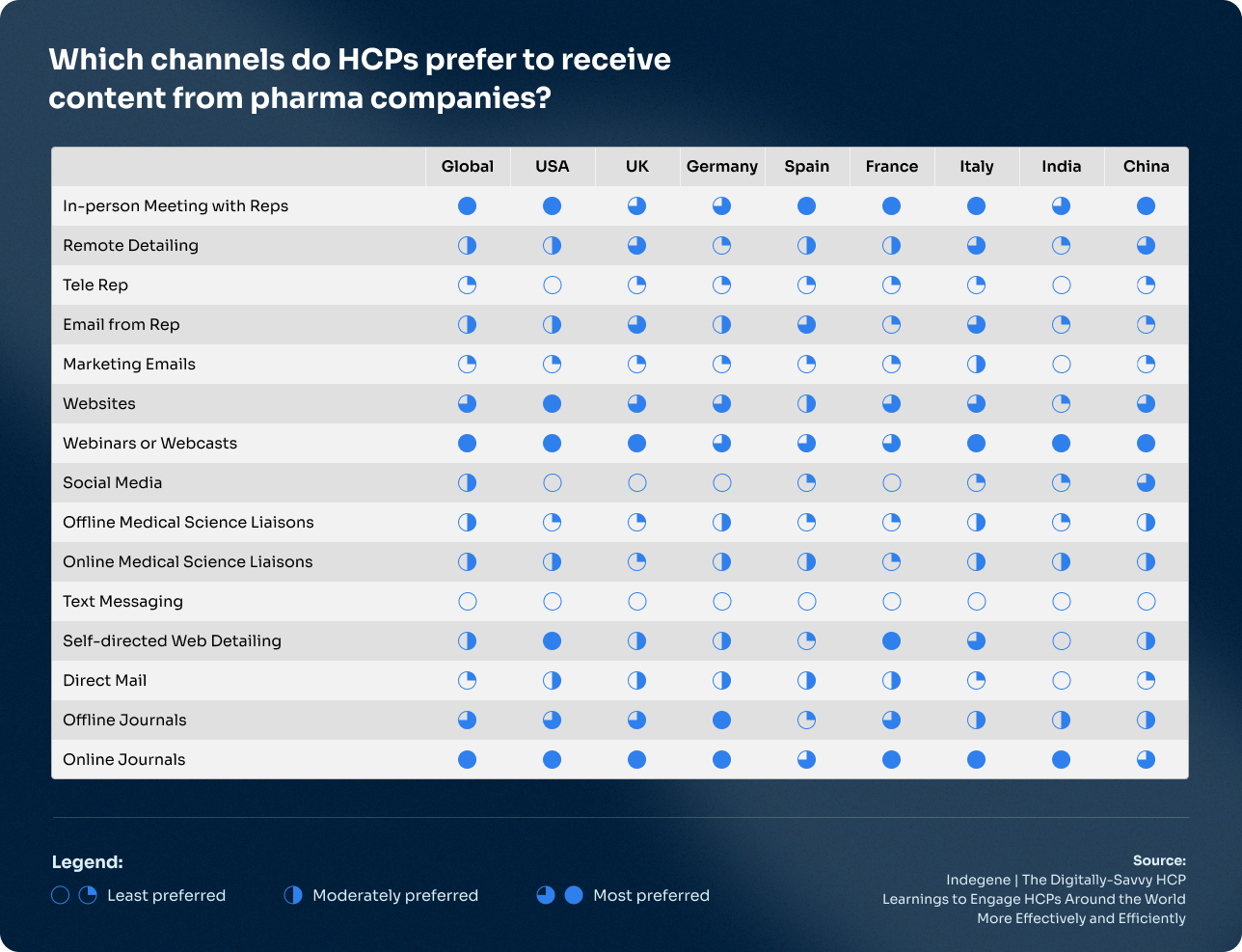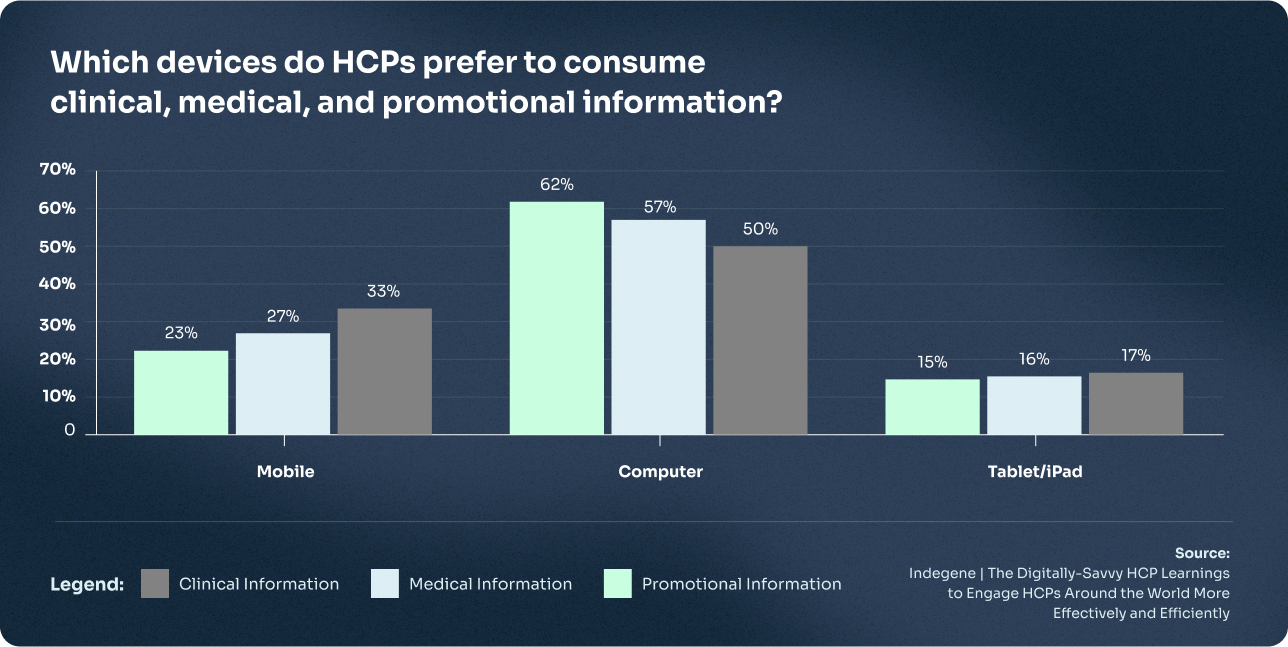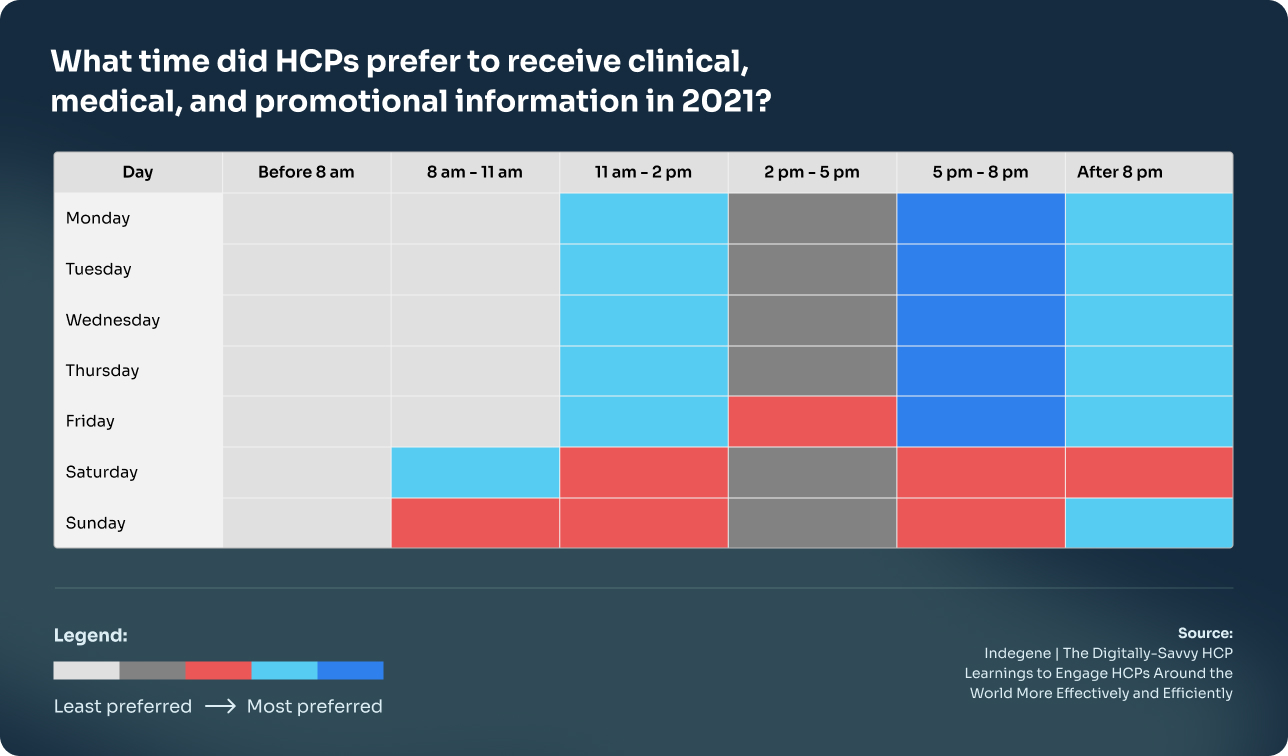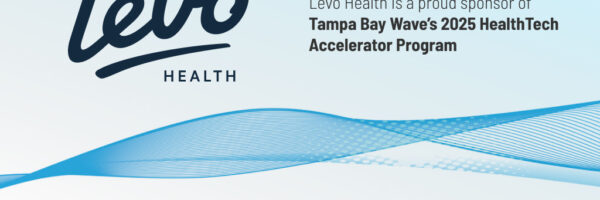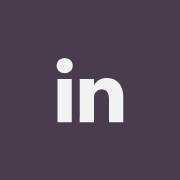As healthcare professionals (HCPs) become more adept at engaging with digital marketing content, pharmaceutical marketers find it crucial to recalibrate their strategies. This shift is about more than just keeping pace with technology. It’s about understanding and integrating into the digital routines of HCPs. By prioritizing specific HCP marketing strategies, pharma marketers can achieve more effective outreach and forge stronger, more enduring relationships with their target audience.
A Look at HCP Marketing and Digital Engagement
Healthcare professionals are now more connected and digitally proficient than ever before. The digital native wave has not only influenced their personal lives but is also starting to permeate their professional interactions, especially with pharma companies. A study by Indegene reveals that 77% of HCPs primarily use digital channels for personal learning and development, and 58% appreciate the flexibility digital channels offer for scheduling interactions with pharma representatives. Therefore, pharma companies are investing heavily in digital marketing strategies to reach and engage with HCPs.
Channel and Content Preferences
HCPs’ preferences for digital channels and content types are nuanced and vary by region, specialty, and experience level. For instance, 68% of HCPs favor webinars or webcasts for information, indicating a preference for engaging with pharma organizations on their terms. This preference for specific channels and content types must be a cornerstone of any pharma digital marketing strategy. When pharma marketers understand these preferences, they can tailor their approach for maximum impact. Take this into account when targeting HCPs in different regions or specialties, ensuring the messaging is relevant and resonates with their interests.
Crafting a Personalized HCP Marketing Strategy
The one-size-fits-all approach is obsolete. About 70% of HCPs feel that pharma representatives do not fully understand their needs. Personalization at scale is the new mandate, requiring pharma companies to invest in robust content development. Device preference is another critical factor in HCP digital marketing. The Indegene report shows a split preference, with 50% of HCPs favoring promotional content on mobile devices, while clinical and medical content is preferred on computers or laptops. Recognizing these preferences is crucial for delivering content effectively.
Aligning With HCP Time Preferences
HCPs are often pressed for time, making it essential for pharma companies to not only reach out through preferred channels but also at times that suit HCPs’ schedules. Most HCPs prefer to receive information in the evenings on weekdays and weekends, a pattern that varies slightly by region and specialty.
This insight can help pharma companies prioritize channels accordingly, ensuring maximum engagement with HCPs through effective HCP marketing strategies. While in-person meetings remain important, digital channels offer a complementary avenue to engage HCPs without the constraints of traditional office hours. This flexibility allows HCPs to engage with pharma content at their convenience, enhancing their overall experience and fostering a stronger relationship.
Regional HCP Digital Marketing Insights
Understanding regional nuances is crucial for pharmaceutical companies aiming to connect with healthcare professionals effectively. Different regions exhibit distinct preferences and behaviors regarding digital engagement, necessitating tailored marketing strategies. From the preferred type of content to the favored channels and times for engagement, regional insights can guide pharma marketers in crafting campaigns that resonate with HCPs on a local level.
The United States
In the US, HCPs show a clear preference for webinars and online journals over the marketing emails and websites commonly used by pharma companies. They are most receptive to consuming content on their computers or laptops during the evening hours, specifically between 5:00 p.m. and 8:00 p.m. on weekdays.
US HCPs prioritize information on safety, efficacy, and treatment guidelines for professional development. Despite this, 47% report feeling overwhelmed by the volume of content from pharma companies, especially product promotions and emails. Only 14% believe that pharma representatives fully understand their needs, highlighting a gap that can be bridged by providing more relevant content at convenient times through preferred channels.
The United Kingdom
Pharma companies in the UK often reach out via emails and webinars, but HCPs prefer to access information through webinars and online journals, with a lesser emphasis on emails from representatives. The prime time for these professionals to engage with content is midday, from 11:00 a.m. to 2:00 p.m. on weekdays, primarily on computers and laptops.
UK HCPs have a keen interest in real-world evidence and data on safety and efficacy. Approximately 45% feel the strain of excessive content, particularly promotional material and event information. Furthermore, 13% of HCPs feel their needs are not completely understood by pharma representatives, suggesting a need for more personalized and timely content delivery.
Germany
German HCPs are approached by pharma through emails and journals, but they place a higher value on webinars. They prefer to consume content in the evening, between 5:00 p.m. and 8:00 p.m. on weekdays, using computers and laptops. With a preference for content on treatment guidelines, safety, and efficacy, a notable 58% of HCPs in Germany report feeling overwhelmed by pharma content. 12% of German HCPs believe that pharma representatives fully grasp their needs, indicating a significant opportunity for improvement in personalized content delivery.
Spain
In Spain, while pharma companies frequently use emails for outreach, HCPs prefer face-to-face discussions and webinars. They are most likely to engage with content in the early evening, from 5:00 p.m. to 8:00 p.m. on weekdays, via computers and laptops. Spanish HCPs favor content that provides real-world evidence, treatment guidelines, and efficacy data. Despite this, 57% feel overwhelmed by the content they receive, mainly due to promotional materials. However, most believe that pharma representatives understand their expectations well, which is a positive indicator of engagement.
France
French HCPs lean towards self-directed web detailing and face-to-face discussions, with a preference for online journals over webinars. They typically consume content after 8:00 p.m. on weekdays, using computers and laptops. Content on efficacy, safety, and dosage is highly interesting to French HCPs, yet 42% feel overwhelmed by the promotional content they receive. Roughly 15% do not feel fully understood by pharma representatives, pointing to a need for more nuanced and accessible interactions.
China
Chinese HCPs engage with webinars, face-to-face discussions, and online journals, with a preference for mobile access in the early evening, from 5:00 p.m. to 8:00 p.m. on weekdays. With a preference for content on safety, efficacy, and treatment guidelines, 58% of HCPs in China feel overwhelmed by the volume of pharma content. Only 5% feel their needs are not fully understood by representatives, indicating a relatively better alignment but still room for more tailored interactions.
These insights into regional preferences underscore the importance of a strategic, localized approach to HCP digital marketing, ensuring content is not only relevant but also delivered in a manner that aligns with the unique digital habits and preferences of HCPs in each country.
The Overload of Promotional Content
HCPs are increasingly overwhelmed by the volume of promotional content. Pharma companies need to balance promotional content with educational and insightful content that adds value to HCPs’ practice and doesn’t contribute to digital fatigue. Additionally, pharma marketers must embrace the digital shift and refine their strategies to align with the evolving preferences of HCPs. This involves a deep understanding of HCP behaviors, preferences, and schedules to deliver a customer experience that resonates and builds lasting relationships.
Embracing this HCP digital marketing shift is the way forward for pharma companies to stay ahead of the curve and drive successful engagement strategies. By staying attuned to HCPs’ digital habits, pharma marketers can create a more meaningful and personalized experience that ultimately benefits both parties.
Optimize Your HCP Marketing Strategy With Levo Health
Are you ready to enhance your HCP marketing strategy? Contact Levo Health for expert guidance and tailored solutions that resonate with the digital preferences of healthcare professionals. Our team is dedicated to helping you navigate the digital landscape and connect with your audience in the most effective way possible. Contact us today to start the conversation.
